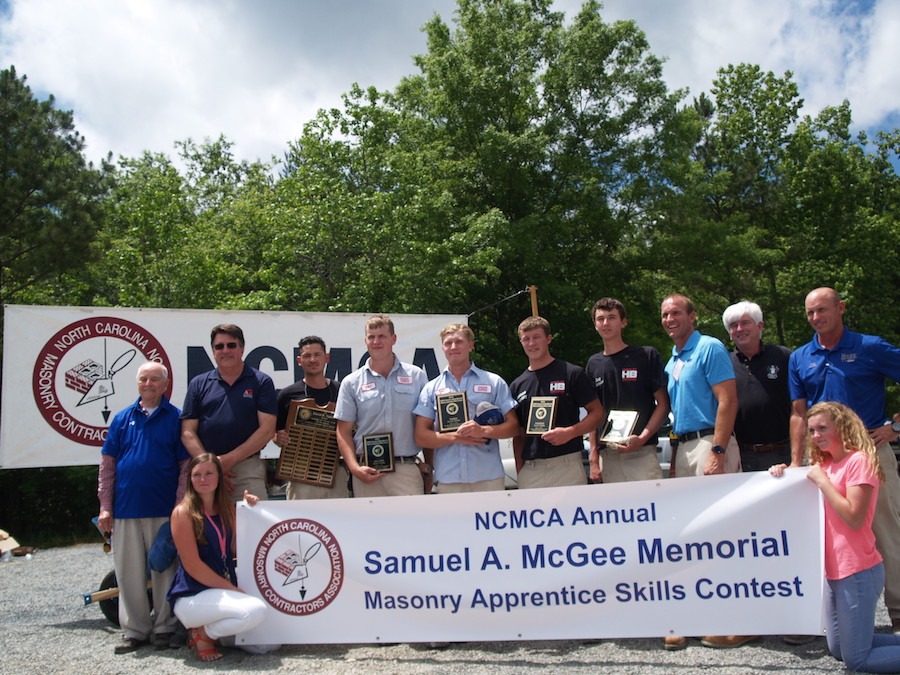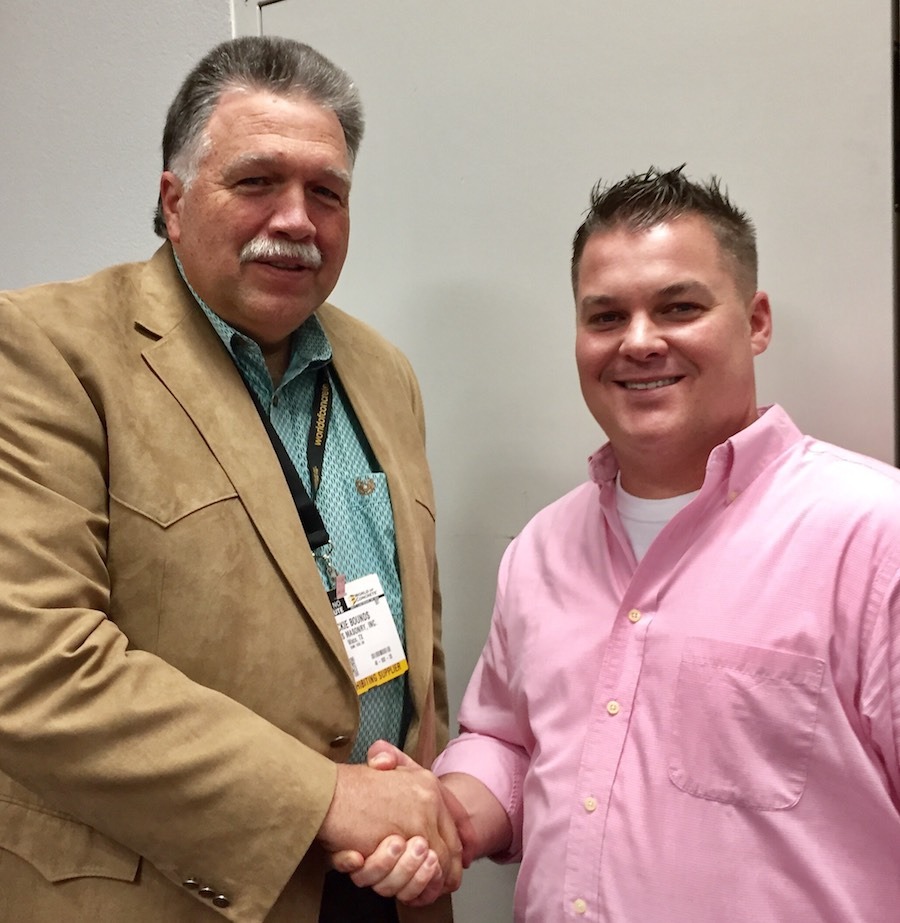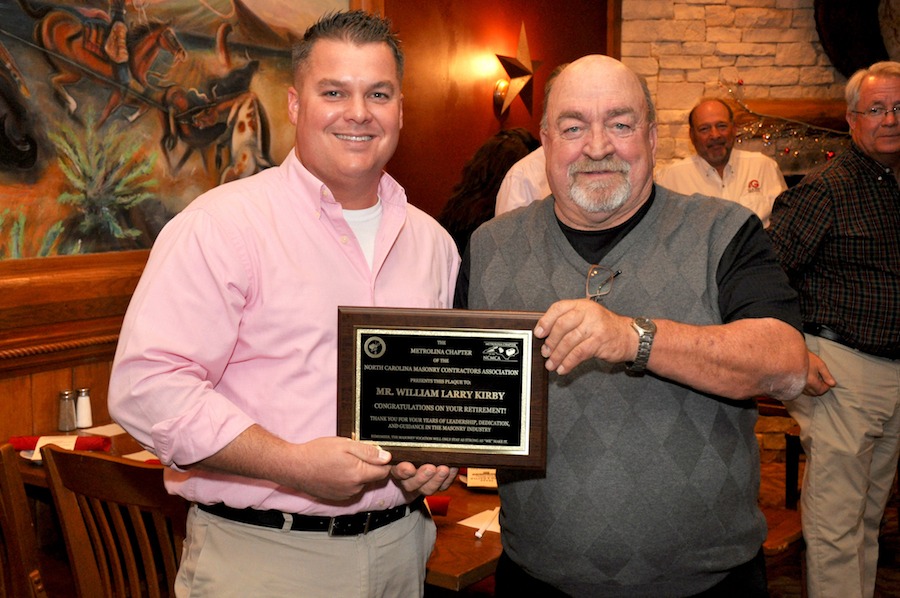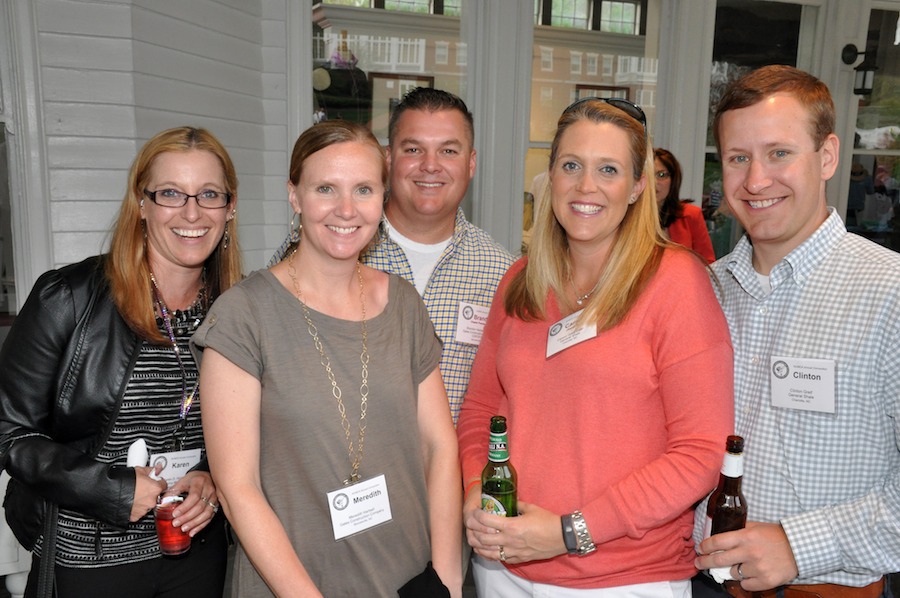Editor’s Note: In the second part of our new GEN NXT column, I had a conversation with Brandon Hartsell. He’s a Project Manager at Gates Construction and a Certified Masonry Professional. He also serves as the Chairman of the MCAA’s South of 40 Committee, which aims to provide members the opportunity to become more involved and introduce a youthful voice to the industry. Thank you Brandon for taking time out to talk with me and share your insight.
Dan Kamys: Why don’t we start with your background in masonry. What got you into the field?
Brandon Hartsell: I started to work with my dad when I was 12 years old. When I was 12 years old, it was okay to go to work at that age. Worked for him for many years, and would work for him while out of school on vacation. Summers, around Christmastime, I mean anytime we were out of school we’d work for my dad.
DK: So it really started as a family business you got involved with?
BH: When you’re in it with family members you see the ups, you see the downs, and you see how hard the work actually is. I knew that I wanted to be in that field, but I didn’t know to what extent. I wanted to go to college.
DK: Can you tell me some of your favorite memories working with your dad or what drew you to the industry when you were younger?
BH: One of the fondest memories of working with my dad was he would let family work with him. A lot of people won’t. So my cousins always worked with us off and on. So I got to spend a lot of quality time hanging out with guys who were 10 years older than I was. It was probably one of the neatest times in my life. Not only that, but my brother worked with my dad.
On the truck rides going to and from work, learning how so many different background are touched throughout the course of your lifetime. Just meeting the people that made up that workforce during that part of my life.
Of course I started working and making mortar when I was 12, but earlier than that we would get to go to job sites when it was close to home and play in the sand pile. That was awesome. I mean I’ve built more sand castles than probably a professional castle builder there.
DK: So college was the goal. Did you wind up going to college, and did you keep working with your dad?
BH: Yeah, so I worked for him of course through elementary school, high school and then I went to college and would still come back and work with him on my breaks. So I was the first one in my family to go and complete college, and I knew that my life didn’t revolve “around the line” so to speak.
DK: After college, what did you do to try and get yourself out from working “around the line?”
BH: I went to work for another masonry contractor in the Charlotte area. My dad actually dissolved his company and went to work for them as well. So that’s where I got my first bird’s eye glimpse at estimating and project management. They were a residential masonry contractor, so I worked for them for four years and they decided to start a commercial masonry contracting business as an offshoot of what they were. I was looking for any way I could to move up the ladder, so I told them that I felt that it might be an avenue I wanted to go down. So I did that.
DK: Once in the commercial side, how’d you get started there?
BH: I started as an estimator for them to learn the ropes and all that good stuff. Then I moved into project management. I’ve pretty much been a Project Manager ever since. That’s what led me to Gates Construction, which is where I work today. Honestly, I can say without a doubt that if the man won’t kick me out the door I will be here the rest of my life.
DK: So let’s talk about what you do now. What does your job really entail now?
BH: Like I said I’m a Project Manager for Gates Construction out of Mooresville, North Carolina. My job is to make sure that our projects run smoothly, our superintendents have the information they need. [I] make sure the numbers work, make sure there are no holes. It all creates a very smooth transition at the end of the project.
DK: Very different from what it sounds like you did when you were younger.
BH: Early in my career when I was working with my dad, I was a laborer. That was it. I drove a forklift, made mortar. Anything I could do to serve the mason, that’s what I did. I think that gives you a greater respect for what you do, no matter what it is later in life. If you have a little hard labor early in life, you will appreciate what you have a whole lot more.
DK: How did you get more involved with the Metrolina Chapter?
BH: About three or four years ago I approached our Metrolina Chapter out of North Carolina. I asked the president how I could get into his position. He told me he was four or five years from retirement and “today’s your lucky day.” He didn’t hand it over to me at that point, of course, but he told me he would gladly give it to me if I could get the votes required and proper support. The next week we had a passing of the gavel so to speak.
At that point, we did very small things that made an impact to night and day. Things like taking credit card instead of just cash or check. Last April at our yearly conference, I was voted in as a state officer. I don’t know if I was the youngest one ever, but you join a group of guys that you see in the magazine. Hey, I see that. I want to do that.
I am all about promoting this industry to the next generation. I think that’s one of my biggest draws to get involved.
DK: So let’s talk about your involvement with the MCAA.
BH: I emailed Jeff Buczkiewicz and Mike Sutter about four or five months ago and asked “how do I get into your position one day?” It wasn’t 30 minutes or an hour, and then I got an email back that said we should talk first. So I was a good fit for South of 40. If you want something, you just have to ask for it. The worst thing that’ll happen is you’re told no, but most of the time they’ll tell you how to do it.
I think the MCAA is the crown jewel of the industry as a whole. To be a part of anything and to speak in front of that group at the convention, I was on a high. You’ve got Mackie Bounds, a big Texas cowboy standing there and you’re already scared to death. You have someone like him shake your hand and tell you “I enjoy what you’re doing. You’re making this exciting.”
DK: Let’s talk a little bit more about what you do as a lead for the South of 40 Committee.
BH: It’s a group that helps to bring the younger folks together in our industry as a whole. I took over that and immediately thought that there are things to be changed right now. I went into it full steam ahead, and it allows me to touch a younger generation of younger workers for this field. Whether it is fieldwork, management fieldwork, or office work. We have to get out of there and touch as many people in the younger generation that we can.
I would say that 80% of our workforce is 45 and above. 15 years from now, these guys aren’t going to want to lay brick for the rest of their life. This industry is about putting bricks into a wall, but it’s so much more. We need to leverage the digital revolution to show kids that there’s a lot more than just laying brick.

DK: So what advice would you give to a younger professional in the industry?
BH: The industry can provide a very, very stable and lucrative future for you and your family. That would be my number one take-home. The reason I say that is years ago, I read Masonry and Mackie Bounds said the same thing.
This is a vocational degree, but we have to be able to show the parents and these workers that you don’t just take classes in bricklaying. Every vocational class I took was in architecture or in AutoCAD, and I kept doing it in college because I knew this was a hard field. People who don’t have an in are unaware that there’s digital, you use iPads and you use technology.
DK: Brandon, thank you so much I really appreciate it.
BH: I appreciate you giving me the opportunity.



